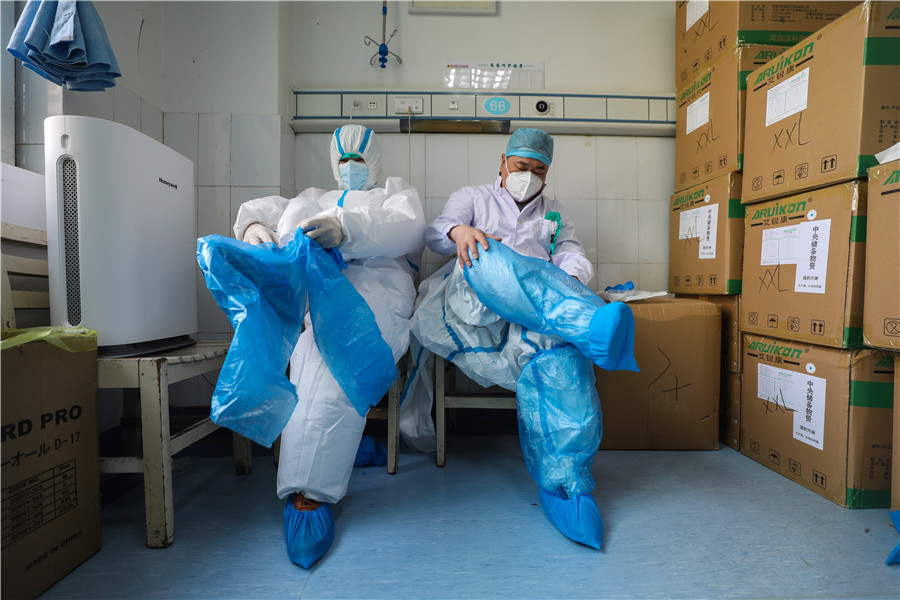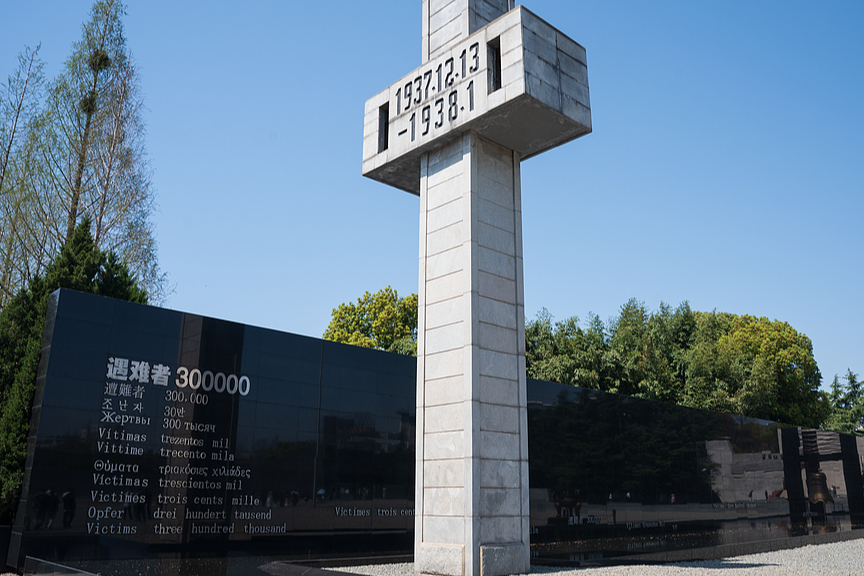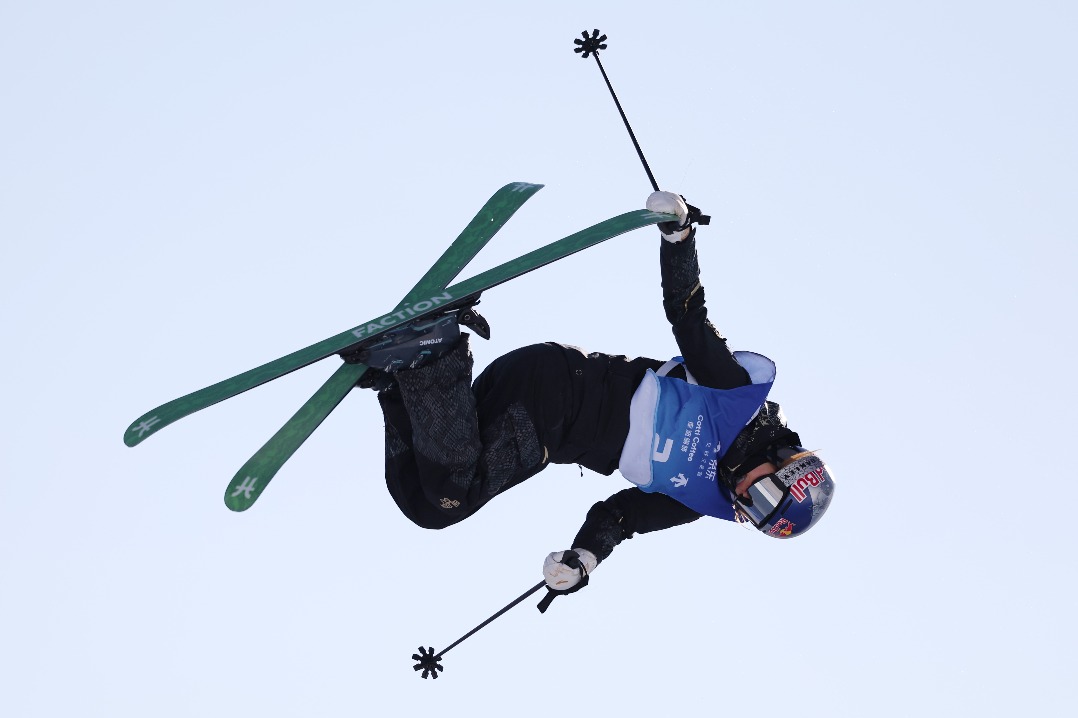Fire and ice: How one couple outflanked a bug on the move
By Anthony Perry | chinadaily.com.cn | Updated: 2020-02-27 14:18

Wei hails from up north. The native of Jilin province has for much of the past month and more been hot and bothered. For the former, blame the mercury - days on end the wrong side of 40 C, not to mention the toxic smoke. And for bother aplenty, try Harbin in neighboring Heilongjiang province.
It's not the city's fault. Tucked away in China's northeast corner, Harbin is famous for its elegant Russian architecture and winter ice festival. That's where Wei's wife Biyu went for the Spring Festival, arriving in mid-January for a long break with her parents. And that's where the northeast's highest concentrations of the coronavirus - now just under 200 cases - began to be logged.
In the lead-up to the Lunar New Year, Wei came to have more on his mind than his neighbors did. Not for him was the worry of whether the garden would recover from the drought that fueled the bushfires scorching swathes of Australia's southeast. Social media networks were buzzing as Chinese Australians kept tabs on family and friends back home, Wei told me from his house in a leafy suburb of Sydney. The buzzing is even louder with the 100,000 or so students stranded by a travel ban set by the government.
That ban gave Wei even more reason to sweat in Australia's Black Summer that broke records best left alone. Prime Minister Scott Morrison is not known for his oratorical gifts, but lots of people on both sides of the equator hung on his every word when he announced the country would be shut to arrivals from the Chinese mainland from the start of February. Biyu's Australian passport was her talisman. Still, citizens were left scrambling for seats on a rapidly shrinking fleet of south-bound aircraft.
Biyu's return flight was booked for Feb 19. But the thinking, Wei told me, was that anything could happen in that time. Biyu found that her Chinese carrier had even pushed back her travel date. Cue calls to South Korean airlines, for a Harbin-Seoul-Sydney routing. Then some airlines from that country announced Chinese routes would be suspended. Another throw of the die, for Qantas Airways. She landed a seat on the Australian flag-carrier's last flight from Shanghai before a Feb 9 suspension.
By this time, Sydney's choking skies had cleared in the blink of an eye, or rather the clap of thunder that brought torrential rains and flash floods – the kind of meteorological somersaults in which the driest continent excels. If Wei needed a reminder that things can change quickly, he found it in a long-banished umbrella. Their ordeal wasn't over.
If just one person in the high-rise apartment block of Biyu's parents came down with viral symptoms, everyone inside would be quarantined for 14 days. The ubiquitous temperature checks were also a source of worry if a fellow passenger for her flight was blocked. And what if a disembarking passenger was found with a temperature at the airport in Sydney? Australia had just sent to far-flung Christmas Island the first batch of the more than 500 citizens evacuated from Wuhan - ground zero of the COVID-19 outbreak - for quarantine.
Wei, a nurse, could be forgiven if his mind was beginning to race. As it was, Biyu put her best ear forward for the thermometer, and was rewarded with a batch of papers in English and Chinese – welcome home and to quarantine. She has just finished serving her two-week sentence at home, with Wei as her fellow captive.
It ended less eventfully than it began. A day after leaving an icy Harbin – with lows of -25 C – she and Wei were enjoying a candlelit meal, which, for a rustic touch, was rustled up on a gas camping stove. They made a habit of that in the first days of their reunion – courtesy of yet more celestial pyrotechnics that knocked out the power for almost 100,000 Sydneysiders. They got off lightly; some were in the dark for up to a week.
As for the quarantine, Wei and Biyu were relaxed about it – if not their spring-heeled border collie. They had catching up to do, and all that reading. They monitor the outbreak – in two languages – and are hoping that each day their families become a little safer. Wei says the issue is still among the lead items on the TV news. But, in Australia, there's a long-term booking for the top spot – it's called the weather.
The author is an editor with China Daily.
























